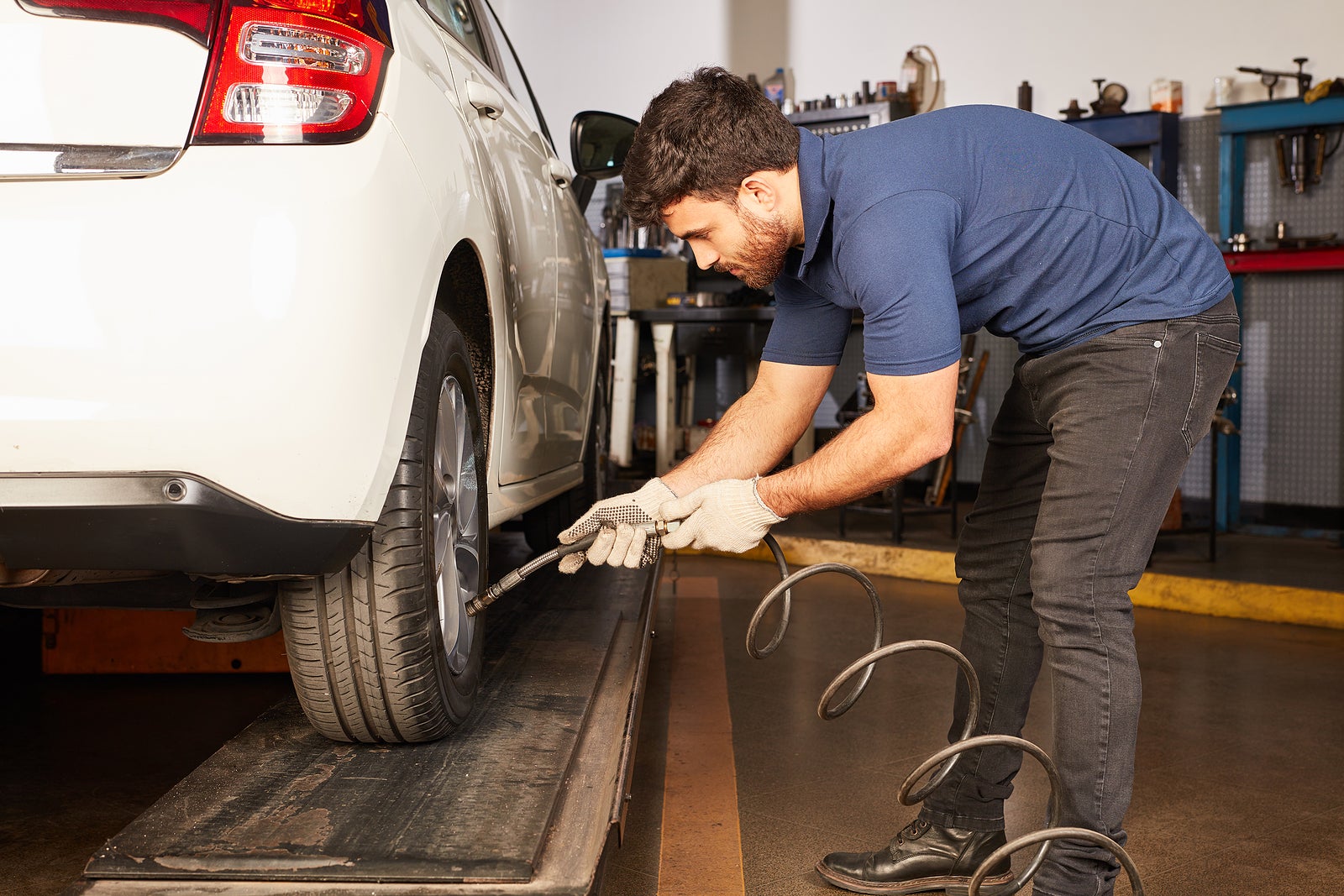
Anyone who drives a car to get from one place to another knows the ill-effects of having a car with low mileage. Whether for business or pleasure, if it consumes a lot of fuel, after a point the expenses may start bugging you.
No wonder, an average American household spends around $2,000 a year on gas.
However, in many cases, low mileage is not the car’s fault. It also depends a great deal on how you drive and maintain it.
In this post, we are sharing four useful tips that will help you maintain your car for improving its mileage.
1. Maintain Optimal Tire Pressure
If you are driving with low tire pressure, your car will have to do a lot more work than it normally needs to.
Your car’s tire can’t deliver their best performance at low air pressure. This makes your car heavier on the tires, making it harder to move further. As the amount of work is increasing, your fuel consumption will also increase.
Have a word with a service center expert and ask them about the optimal tire pressure for all four tires of your vehicle.
2. Don’t Be Rough While Driving
The way you drive your vehicle largely determines whether it’s going to consume a lot of gas or not.
For example, if you are one of the high-rev champions who drift the ride bringing the fastest potential out of every single gear, you will be burning a lot of fuel. While if you ensure to drive your vehicle at an optimum RPM, you will be saving fuel and money.
This is also healthy for your car’s engine as it doesn’t harm it in the long run.
Also, make sure that you are not double footing your car’s pedals, i.e., not pressing the accelerator and the brake pedal at the same time. This is a mistake that many new drivers make involuntarily.
3. If You Are Moving Fast, Shut The Windows
Aerodynamics play a major role in deciding how efficiently your car is moving on the road.
For example, if you are driving at a fast pace, keeping the windows open will disturb the aerodynamics, making the mileage go down. This happens as the air moving in and out of through your windows will have effects on the car’s movement.
Keeping your car’s windows open while on a highway, driving at high speeds is also risky as it can disturb the balance of your car, and may even lead to accidents.
4. Keep A Regular Check On The Moving Components
When your car is set to motion, a large number of components move in various directions to power up the car.
From the bearings in the wheel hub to the pistons inside the cylinders, there’s a lot of movement happening. To ensure that your car’s mileage is not being affected by these moving parts, you should make sure that all these components are in perfect alignment with other dependent components.
For example, if the bearings in your wheel hub are broken, the movement of your car will not be optimal. The engine will have to do more work to pull the wheel with broken bearings. Similarly, in case your brakes are defected, they may push against the tires retarding the forward motion of your car.
This will also cause your car’s mileage to drop. Plus, this will irreversibly damage your car’s disc brakes, giving rise to another expense.
Final words
Boosting your car’s mileage may not be the toughest part of maintaining it, but, if you don’t know how to do it, you may have to face challenges.
In this blog post, we shared four quick tips to help our readers improve their car’s mileage. Hopefully, this was helpful.
1892 Views












